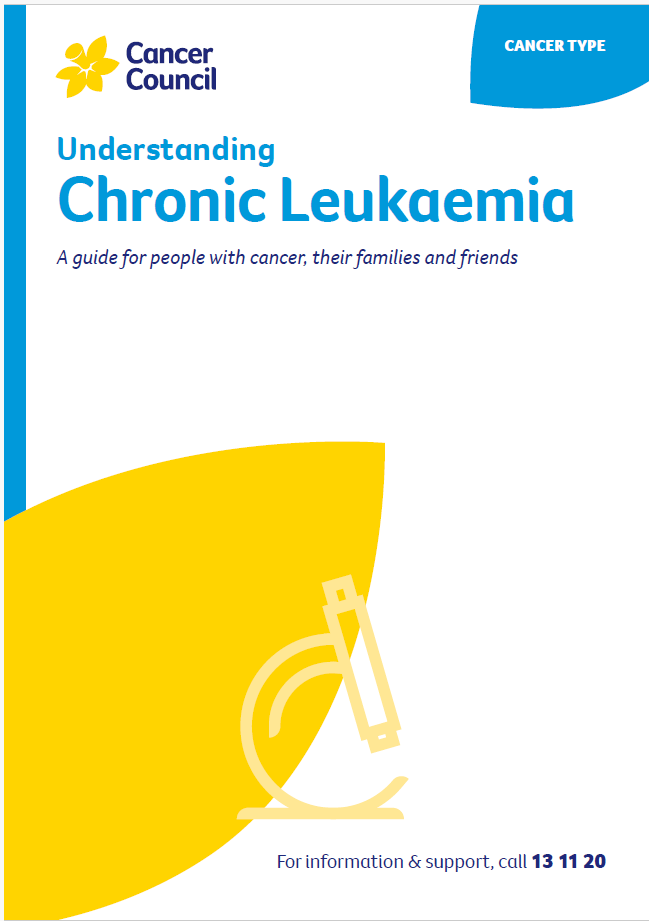- Home
- Chronic myeloid leukaemia (CML)
- Diagnosis
- Staging and prognosis
Staging and prognosis for CML
These tests allow the doctor to work out how far the leukaemia has progressed. This process is called staging, and it helps the doctor recommend the best treatment for you.
Learn more about:
Staging
Chronic myeloid leukaemia (CML) is classified into three groups, which are called phases instead of stages. The phases are based on the number of immature white blood cells found in the blood and bone marrow.
Phases of CML
| chronic | The white blood cell count is increased and a small number of immature cells called blast cells are found in the blood and bone marrow. |
| accelerated | After several years, the number of blast cells may suddenly increase. At this time, your spleen may become enlarged and your white blood cell count may rise rapidly. |
| blast | The number of blast cells significantly increases, symptoms worsen, and blast cells often spread to other organs. This is sometimes called blast crisis. Bleeding, infections and anaemia can occur. |
Most people have chronic phase CML when diagnosed. They stay in this phase for a few years without treatment. With treatment, the disease can go into remission and people with well-controlled CML can have a normal life span.
If the disease progresses, it doesn’t always do it in a step-by-step way. In some cases, it moves straight from chronic to blast phase, skipping the accelerated phase.
Prognosis
Prognosis means the expected outcome of a disease. It is not possible for anyone to predict the exact course of the disease, but your medical team can give you an idea about how the CML will respond to treatment. Factors used to assess your prognosis include the phase of the disease, your blood counts and if your spleen is enlarged. Your team will also arrange tests throughout your treatment to check how well the CML is responding.
Recent advances in how CML is treated have dramatically improved outcomes. For most people, the goal of treatment is to get the disease into remission. If the CML does move into the accelerated or blast phases, treatment does become more challenging, but there are still good treatment options available.
→ READ MORE: Your health care team for CML
Podcast: Tests and Cancer
Listen to more of our podcast for people affected by cancer
More resources
Dr Chun Kei Kris Ma, Clinical Haematologist, Western Sydney Local Health District (clinical update); Delphine Eggen, Consumer; Dr Robin Gasiorowski, Staff Specialist, Haematology, Concord Hospital; Karl A Jobburn, Haematology Clinical Nurse Consultant, Liverpool Hospital; Yvonne King, 13 11 20 Consultant, Cancer Council NSW; Heather Mackay, Clinical Nurse Consultant, Westmead Hospital; Jennifer Paton, Consumer.
View the Cancer Council NSW editorial policy.
View all publications or call 13 11 20 for free printed copies.

